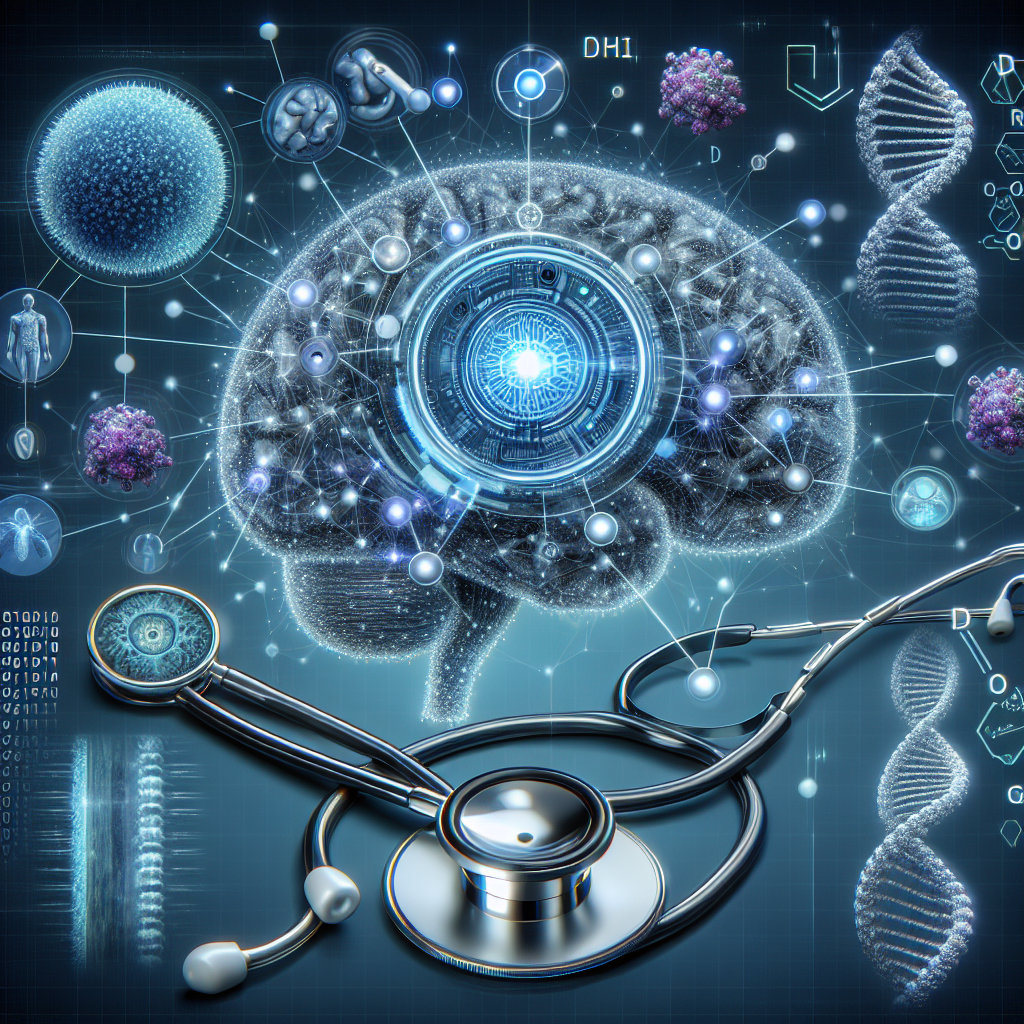In recent years, the field of precision medicine has seen significant advancements, thanks in part to the integration of artificial intelligence (AI) technology. AI has the potential to revolutionize the way we diagnose, treat, and prevent diseases by analyzing vast amounts of data to identify patterns, predict outcomes, and personalize treatment plans for individual patients. As AI continues to evolve and improve, its integration into precision medicine is expected to have a profound impact on the future of healthcare.
One of the key benefits of AI integration in precision medicine is its ability to analyze complex data sets quickly and accurately. This allows healthcare providers to make more informed decisions about patient care, leading to better outcomes and a more personalized approach to treatment. For example, AI algorithms can analyze a patient’s genetic information, medical history, and lifestyle factors to predict their risk of developing certain diseases and recommend targeted interventions to prevent or manage them.
AI can also help improve the efficiency of clinical trials by identifying suitable candidates for participation based on their unique genetic profiles and predicting which treatments are most likely to be effective for them. This not only speeds up the drug development process but also increases the likelihood of successful outcomes for patients.
Furthermore, AI can assist healthcare providers in diagnosing diseases at an early stage when treatment is most effective. By analyzing medical images, such as X-rays, MRIs, and CT scans, AI algorithms can detect subtle changes that may be missed by human radiologists, leading to earlier and more accurate diagnoses. This can significantly improve patient outcomes and reduce healthcare costs by avoiding unnecessary tests and treatments.
In addition to diagnosis and treatment, AI can also play a crucial role in disease prevention and management. By analyzing data from wearable devices, such as fitness trackers and smartwatches, AI can monitor patients’ health in real-time and provide personalized recommendations for diet, exercise, and medication adherence. This proactive approach to healthcare can help prevent chronic diseases, such as diabetes and heart disease, and improve the overall quality of life for patients.
Despite the many advantages of AI integration in precision medicine, there are also challenges and limitations that need to be addressed. One of the main concerns is the potential for bias in AI algorithms, which can lead to disparities in healthcare outcomes for certain populations. To mitigate this risk, researchers and developers must ensure that AI systems are trained on diverse and representative data sets to minimize bias and promote equity in healthcare.
Another challenge is the need for regulatory oversight and ethical guidelines to govern the use of AI in precision medicine. As AI technology becomes more sophisticated and widespread, there is a growing concern about privacy and security issues, as well as the potential for misuse of sensitive patient data. It is essential for policymakers, healthcare providers, and technology companies to work together to establish clear guidelines and safeguards to protect patient confidentiality and ensure the responsible use of AI in healthcare.
Despite these challenges, the future of AI integration in precision medicine looks promising. With continued advancements in AI technology and collaboration between researchers, healthcare providers, and industry stakeholders, we can expect to see significant improvements in patient care, disease prevention, and healthcare outcomes. As AI continues to revolutionize the field of precision medicine, it is essential for stakeholders to work together to address challenges and maximize the potential benefits of this transformative technology.
FAQs:
Q: How is AI being used in precision medicine?
A: AI is being used in precision medicine to analyze vast amounts of data, such as genetic information, medical images, and patient records, to identify patterns, predict outcomes, and personalize treatment plans for individual patients. AI algorithms can assist healthcare providers in diagnosing diseases, identifying suitable candidates for clinical trials, and monitoring patients’ health in real-time to prevent chronic diseases.
Q: What are the benefits of AI integration in precision medicine?
A: The benefits of AI integration in precision medicine include improved diagnosis and treatment accuracy, faster drug development, personalized healthcare recommendations, and proactive disease prevention. AI technology can help healthcare providers make more informed decisions about patient care, leading to better outcomes and a more personalized approach to treatment.
Q: What are the challenges of AI integration in precision medicine?
A: Some of the challenges of AI integration in precision medicine include the potential for bias in AI algorithms, regulatory oversight and ethical concerns, privacy and security issues, and the need for collaboration between stakeholders to address these challenges and maximize the potential benefits of AI technology in healthcare. It is essential for policymakers, healthcare providers, and technology companies to work together to establish clear guidelines and safeguards to protect patient confidentiality and ensure the responsible use of AI in precision medicine.

